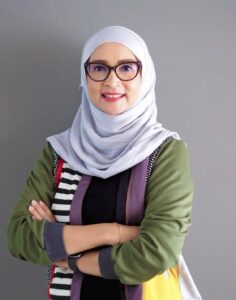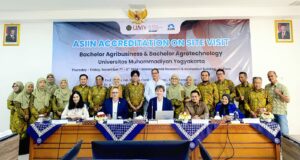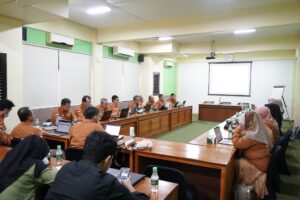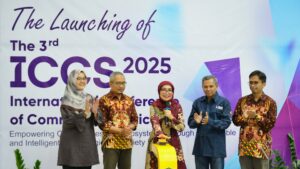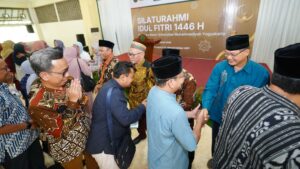 The presence of new media technology in the wider community brought significant changes in how we communicate. This is also felt by people in rural areas. Information and communication technology in television, gadgets, smartphones / mobile phones, and the internet has changed the patterns of interaction and communication styles of people in rural areas.
The presence of new media technology in the wider community brought significant changes in how we communicate. This is also felt by people in rural areas. Information and communication technology in television, gadgets, smartphones / mobile phones, and the internet has changed the patterns of interaction and communication styles of people in rural areas.
Social activities that were originally carried out in person or face-to-face that characterize the gemeinschaft community in the countryside has gradually changed and began to fade as they choose to communicate through the media. The media has become a bridge in public communication. Rural communities are getting more familiar and comfortable using information and communication technology. Many begin to dive in, enjoy and even get addicted by these media. In the Covid-19 period, where work activities and learning activities were mostly done at home, the use of the internet and social media are increasing.
To respond to this phenomenon, four lecturers of Communication Studies Program at Universitas Muhammadiyah Yogyakarta were inspired to provide media literacy counseling for rural communities. The media literacy counseling was carried out in Wonokromo Village, Plered Bantul, on Sunday (7/26). Ayu Amalia, S. Sos., MSi as Head of the Public Service Team said that the presence of various communication media was also felt by young families in rural areas. The same is true in Wonokromo Village of Plered.
“We found that many young fathers are busy with social media, Facebook, WA and internet access to communicate. Young mothers are addicted to watching soap operas on television, hooked on internet access and social media. Children rarely leave the house, they stay in their rooms to play online games or use social media. Work, study, shopping activities, and communication are also widely represented by social media in cyberspace. This is encouraged by the number of companies offering convenience and practicality of providing goods and services through the internet, which further facilitates the lives of young families in rural areas. Usually, in a young family, when the father, mother and children meet in one room, they just play with their gadgets without direct and real personal interaction. Communication through the virtual world has shifted interaction and familiarity in young families,” she explained when contacted on Wednesday (29/7).
This is further complicated with the misuse of the new media, as it is prone to infidelity and misunderstandings, resulting in conflicts and cracks in household relations. “Children who were initially obedient became difficult to manage, easily emotional, reluctant to be invited to religious activities, and anti-social because of their addictions to online games. School affairs became chaotic. on one hand, they need the media (according to the demands of the times), but on the other hand, they are engrossed in it, and it is becoming harder to regulate and control social media so as to cause unexpected negative excesses, “Ayu added.
The counseling conducted by Ayu and her team raised the problems of young families and their solutions to overcome addictions to gadgets, television soap operas, social media and the internet, as well as providing new media literacy and reducing addiction to online games in children. Media Literacy Counseling invited speakers and media communication experts from UMY Communication Studies Program, namely: Zuhdan Aziz, SIP, SSn, MSn, Taufiqurrahman, SIP, MA, PhD, and Dr. Suciati S. Sos, Msi. Each provided a unique perspective, Zuhdan with a soap opera and film media literacy perspective, Taufiq with a Social Media and Internet Literacy perspective, while Suci with a psychology perspective of communication in reducing gadget addiction to parents and online games in children. “The main purpose of this media outreach is to form resilient young families who are media literate and can wisely regulate and control the media,” concluded Ayu.-

